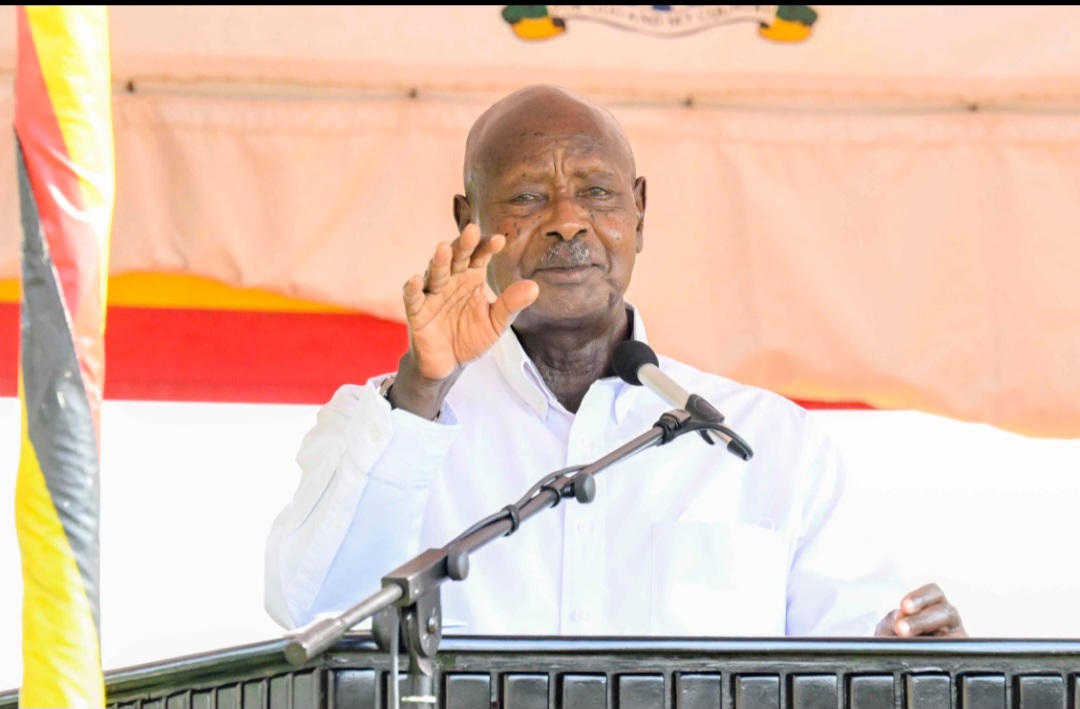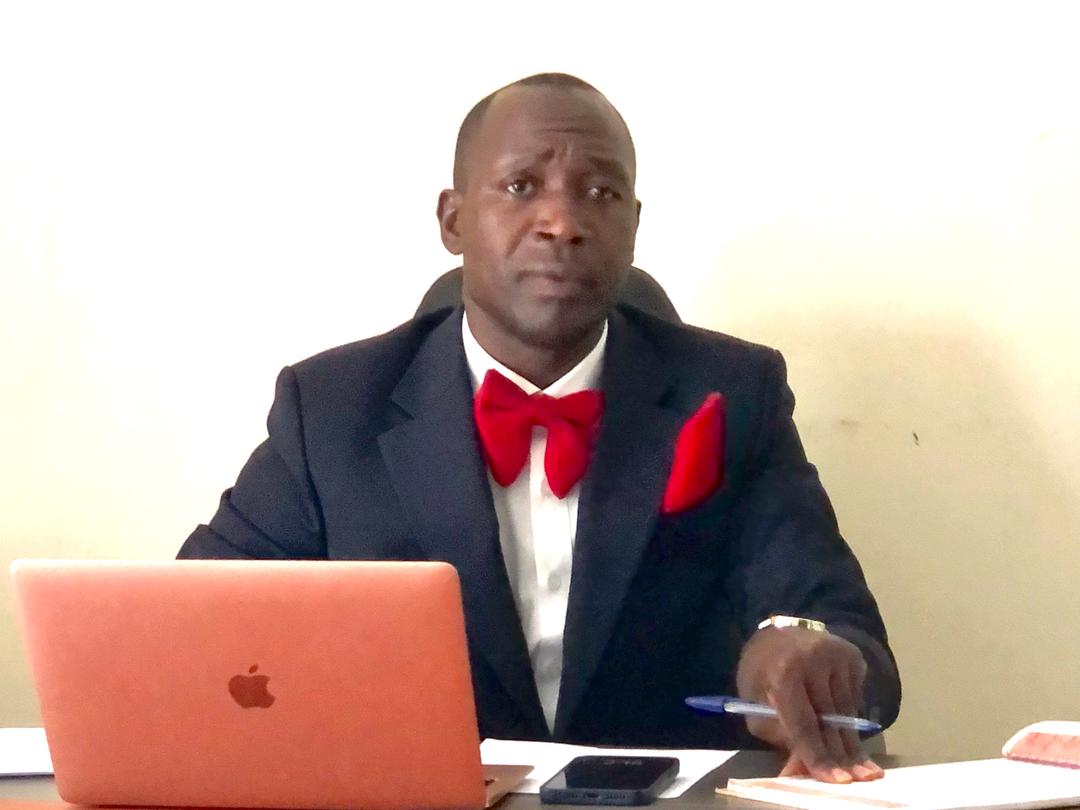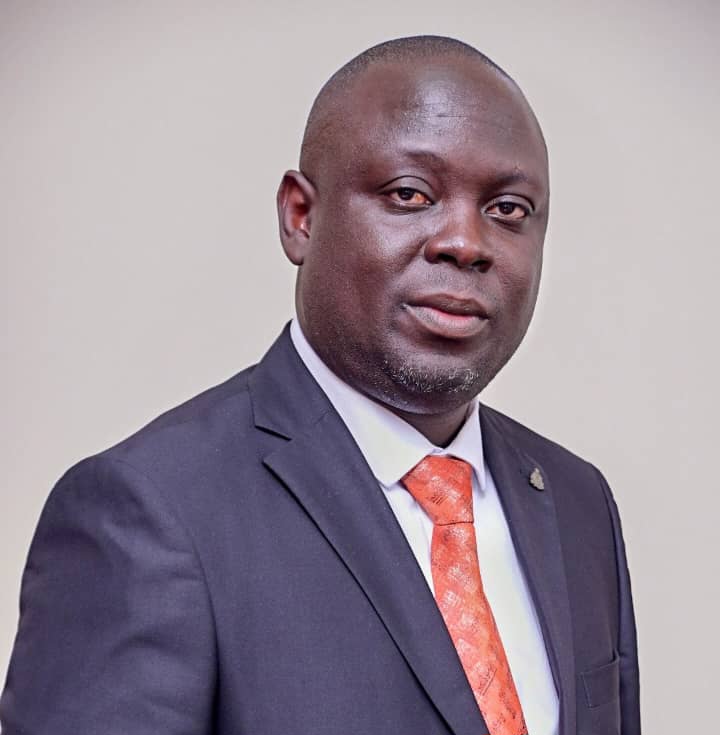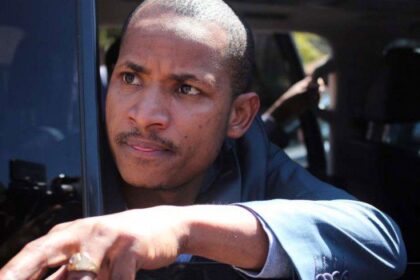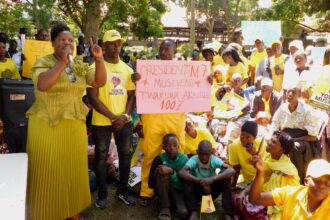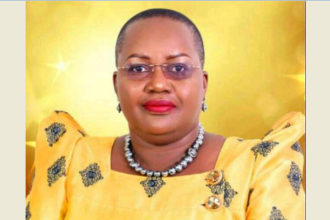President Yoweri Kaguta Museveni has congratulated members of Parliament for passing the Uganda People’s Defence Forces (UPDF) Amendment Bill, 2025.
“I want to congratulate the Members of Parliament for passing the UPDF Amendment Bill. There was going to be a serious problem because some people were saying if a soldier does commit a crime such as killing a person, involving in theft or rapes a woman, they should be taken to the sub county (civilian courts) instead of the court martial. Those who were involved have to repent. There was going to be a serious collision between the army, parliament, and the courts of law, but they have saved us the embarrassment,” President Museveni said.
The President, who is in the greater Luwero on the performance assessment tour on the Parish Development Model (PDM) and other wealth creation programs, made the remarks on Wednesday, 21st May 2025, while addressing a leaders’ meeting at Timnah Nursery and Primary school in Mabaale village, Luwero district.
Parliament on 20th May, 2025, passed the UPDF Amendment Bill, which expands military courts’ authority to try civilians under specific conditions, such as possession of military equipment or collaboration with military personnel in serious crimes like treason or murder.
“When we came from the bush, we decided that even the person who is not a soldier and decides to use a gun to perform a crime, we are going to charge them in the army courts,” the President emphasized, adding that it’s because of this strong resolve, and practicing what he termed as clean politics since 1986 that Uganda has remained peaceful and now focused on wealth creation.
“We told you that among the main pillars of development are peace in the country because, as you hear, many countries around us are rich in minerals and oil, but they don’t have peace, and many of their people are here in Uganda as refugees. We now have 1,800,000 people as refugees here in Uganda,” he noted.
He further emphasized that it’s only the National Resistance Movement (NRM) that is rooted in tenets of unity and national integration rather than sectarianism through the four principles of Patriotism, Pan Africanism, social-economic transformation, and democracy.
President Museveni urged the citizens to understand prioritization in public administration by knowing what is crucial and immediate, adding that, whereas development is needed, wealth creation should come first, through commercial agriculture, services, ICT, and Manufacturing.
He warned against land fragmentation describing it as a hindrance to wealth creation.
“I had my neighbor in Kisozi. He was a very rich man with four square miles of land and 500 cows. When he died, the children just divided, and that huge estate disappeared. And some of the children sold their share. So, this is very dangerous. If that happens to every generation, what will happen to the remaining families?” President Museveni wondered, adding that the modern way is to divide and still use the land collectively and share profits. He gave an example of Hajjat Mariam Baiga’s family in Ssekamuli, Bamunanika, which has succeeded in collective investment.
He reminded the people about his proposal of the seven activities in the 1996 NRM Manifesto of intensive agriculture for those with 4 acres or less, and those with bigger land to practice extensive agriculture.
“I proposed one acre for coffee, another acre for fruits (mangoes, oranges, or pineapples), grass for livestock in the third acre, and the fourth acre for food crops (bananas, cassava, etc). In the backyard, you can put piggery or poultry. Those near the swamps can engage in fish farming. This was our message in the 1996 manifesto. You can hear that the few who have listened to us are doing well,” President Museveni said, adding that crops such as cocoa and palm oil can also yield well in one acre. Other items such as cotton, tea, sugar cane, and maize, he said, require larger pieces of land.
President Museveni said if the Shs100 million PDM support per parish is well managed, Ugandans will have their own Parish Banks worth 1.8 billion in 10 years, but was quick to warn those mismanaging the funds by giving selectively to family members and friends.
The NRM Vice National Chairman for the Central Region, Hon. Godfrey Kiwanda Suubi appreciated President Museveni for transforming Uganda through wealth creation activities, emphasizing coffee, which has transformed the Buganda region and Uganda at large.
Presenting the scorecard in NRM’s performance in Greater Luwero, the party Secretary General, Rt. Hon. Richard Todwong said in 2016 Luwero district gave the NRM party 55.7% of the votes. Nakasongols 84%, and Nakaseke 76%, while in 2021 something happened and the support dropped from 55% in Luwero to 27%, from 84% to 65% in Nakasongola, and eventually from 76% to 53% in Nakaseke.
“The question is, why? You are the leaders. You are the middlemen between the President and the people. We see no problem with the people, but the problem could be with us, the leaders, and we are here with our mentor to unpack the challenges we face with the people we lead,” Todwong said.
Rt. Hon. Todwong thanked President Museveni for donating the Shs 300 million to the party that he received as a court award from Monitor newspaper. He said the party Secretariat has allocated it to Luwero district to construct a party office.
“I’m happy to report that the process is ongoing, and very soon, we shall launch our party office in Luwero,” he added.
The PDM performance in Greater Luwero:
The National Coordinator of the Parish Development Model, Hon. Dennis Galabuzi Ssozi, revealed that in the four years, Shs 62 billion has been distributed among the 240 PDM SACCOs established in greater Luwero.
Hon. Galabuzi noted that Luwero district has the highest number of Saccos (101), followed by Nakaseke (71), and Nakasongola (68). He added that a total of 65,414 beneficiaries have received the PDM funds in 65,000 households, with Luwero leading with 28,000 beneficiaries.
Of these, 20,000 beneficiaries-33% are into crops, followed by livestock (cows, pigs, goats) at 26%, with 7,000 households specifically into piggery.
“I congratulate you because you have performed well and distributed this money among the beneficiaries, up to 99.9% compared to other parts of the country. Thank you very much,” Hon. Galabuzi said, adding that 51% of the beneficiaries in greater Luwero are women, mostly from Luwero. He noted that most of them are located in the town councils of Luwero, Nakaseke, and Nakasongola.
In other statistics, Hon. Galabuzi highlighted that 62% of the beneficiaries are between 31-69 years, those above 60 years are 12%, but was quick to add that the youths in greater Luwero are performing poorly at 26% coverage compared to the national statistics of 38%.
“This is unique because we understand that due to unemployment, the youths are among the most affected by poverty. We need to find out why the youths in Greater Luwero are not active in PDM and get collective solutions,” Hon. Galabuzi added.
Hon. Galabuzi acknowledged the challenge of inadequate agricultural extension workers compared to the increased demand, which is being solved by the established regional PDM facilitators to coordinate the program. Other challenges to address include intermittent electricity and a lack of water for production in the dry season.
To date, a total amount of Shs3.2 trillion has been released to all 10,717 parishes in Uganda.
Presenting on the performance of Emyooga program, the Minister of State for Microfinance, Hon. Haruna Kasolo, highlighted that the biggest problem emerging is the parish Sacco leaders who are selective in the distribution of PDM and Emyooga funds; those borrowing the money are not willing to return it.
“We are going to force you to return this money. It is not returning to the government but in your Parish Saccos for others to also benefit,” Hon. Kasolo said.
Hon. Ephraim Kamuntu, a Senior Presidential Advisor-Economic and Manifesto Implementation, also presented on the role of Musevenomics in Uganda’s social and economic transformation and middle-income country.
“Since the establishment of Uganda in 1894, this is the first time that Uganda has become a middle-income country, and it has done so in NRM’s time under Yoweri Kaguta Museveni’s leadership,” Hon. Kamuntu said, adding that the driving force has been Musevenomics, which is an expression that has recently emerged to describe President Museveni’s scientific approach to understanding how an economy moves through transformative stages, including the Primary production stage, basically peasant and subsistence-based, and the second stage being the secondary production stage, where manufacturing is introduced. The third is the tertiary service stage, where the service sector becomes dominant in its GDP contribution (hotels, tourism, transport), and the fourth stage is the knowledge-based stage, evidenced by the contribution of science and ICT innovation.
He added that using these frameworks, Musevenomics examines the evolution of Uganda’s economy before the British came, the 68 years of British administration in this country, the first 10 years after independence, and the performance of Uganda’s economy under the National Resistance Movement since 1986.
The Minister of State for Investment and Privatisation, Hon. Evelyn Anite, informed the meeting about the theme of the President’s countrywide tour, which is “securing your future through wealth creation,” with a mission to get all Ugandans out of poverty.
“Ladies and gentlemen, standing at the stairs of parliament in 1986 at his swearing in, the President promised Ugandans nothing but fundamental change. And indeed, we are witnessing a fundamental change, and we are in the place where the revolution started,” Hon. Anite said.
Earlier, the Minister of Lands, Housing and Urban Development, Hon. Judith Nabakooba, also presented on the status of land ownership and related issues, mainly about the relationship between squatters and landlords, highlighting the 2022 presidential executive order to all RDCs aimed at protecting squatters from unlawful eviction by the landlords. She asked leaders to make use of the Ministry’s zonal offices and the digital platforms to ascertain the authenticity of land.
The meeting was attended by Ministers, Members of Parliament, NRM leaders, among others.
Do you have a story in your community or an opinion to share with us: Email us at Submit an Article



